Are you an artist looking to take your career to the next level? Crafting a well-structured management contract is essential to ensuring a successful partnership. In this article, we'll explore the key elements that every artist management contract should include, ensuring you protect your creative interests while navigating the business side of art. So, let's dive in and discover how to set the stage for a thriving artistic collaboration!

Parties Involved Identification
Artist management contracts establish clear relationships between parties involved, typically including the artist (visual, musical, or performing) and the management agency. The primary parties' names, also known as "Parties Involved Identification," should be explicitly noted, including full legal names and relevant business structures, such as LLC or corporation for the agency. Address details, such as city and state, should also be included to ensure accurate identification. Additionally, artist's professional name and any stage name must be documented for clarity in representation. Dates of agreement execution should also be specified to establish the timeline of the contractual relationship. Clear identification lays the groundwork for all ensuing clauses in the contract.
Scope of Representation
Artist management contracts define the scope of representation for the artist (representing creative professionals like musicians, visual artists, or actors) and the management agent (typically a management company or individual acting on behalf of the artist). The agreement outlines specific responsibilities, including promoting the artist's work, negotiating contracts, and securing performance opportunities. Key aspects often include territory limitations--such as local, national, or international reach--duration of the representation, and the range of services provided, ranging from career development to financial management. Furthermore, the contract may address exclusive rights, ensuring that the management agent represents the artist without allowing competing agencies or managers. Performance metrics could be included, specifying benchmarks for performance and growth, along with financial compensation arrangements like commissions on earnings generated through representation.
Compensation and Payment Terms
Artist management contracts outline essential details regarding compensation and payment terms. Typical arrangements may include a commission percentage, commonly ranging from 15% to 20% of the artist's gross income derived from performances, merchandise sales, and sponsorships. Upfront fees might be outlined, usually varying from $1,000 to $10,000, particularly for high-profile artists, as initial retainers. Payment schedules can specify bi-weekly or monthly disbursements, ensuring timely compensation for services rendered. Additionally, contracts may address reimbursement policies for out-of-pocket expenses incurred during promotional activities, tours, or travel arrangements, which can include costs for lodging, meals, and transportation calculated at the IRS standard per diem rates. Collectively, these details establish a transparent financial framework, fostering trust and collaborative engagement between artists and their management teams.
Duration and Termination Clauses
The duration of the artist management contract typically spans a specified period, commonly ranging from one to three years, depending on the agreement between the artist and the management agency. Termination clauses detail the conditions under which either party may dissolve the contract, often including provisions for notice periods, usually 30 to 90 days, ensuring both parties have ample time to conclude any ongoing engagements. Additionally, specific conditions such as breach of contract, failure to meet performance benchmarks, or mutual agreement contribute to termination considerations. These guidelines help to clarify expectations and protect both the artist's interests and the management agency's investments.
Confidentiality and Intellectual Property Rights
The realm of artist management contracts involves intricate details concerning confidentiality and intellectual property rights. Confidentiality clauses protect sensitive information, ensuring that both the artist and the management team keep proprietary knowledge, including unpublished works and financial data, undisclosed. Intellectual property rights pertain to ownership of creative outputs, such as music compositions, artwork, and performances, which are crucial in establishing rightful claims and revenue streams. According to the Berne Convention (an international agreement governing copyright), artists retain rights to their original works while granting managers specific usage rights for promotion and commercialization. This legal framework is vital for safeguarding the artist's creativity and ensuring fair compensation in industries like music, visual arts, and entertainment.

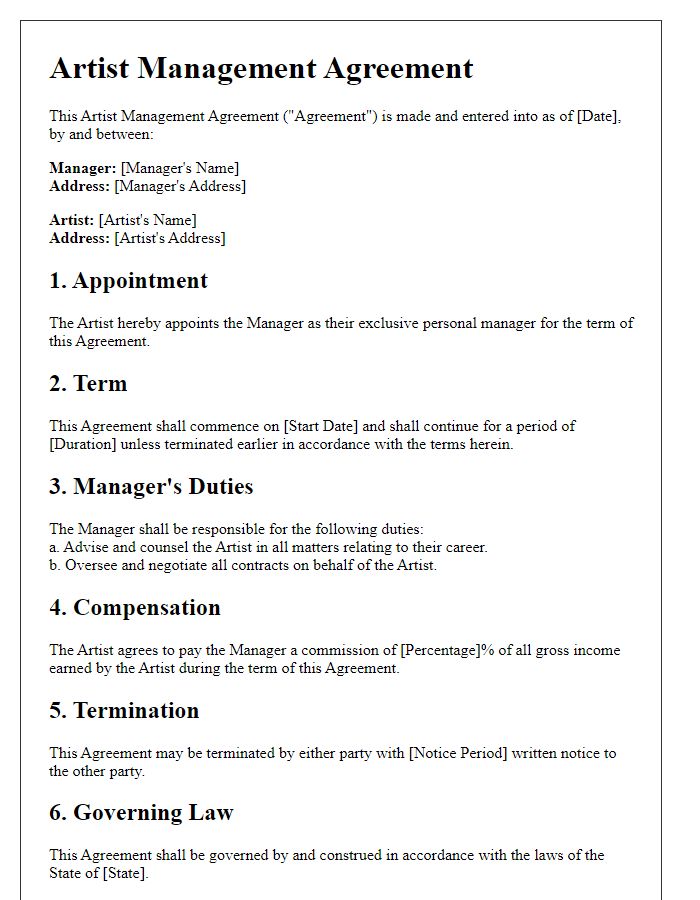
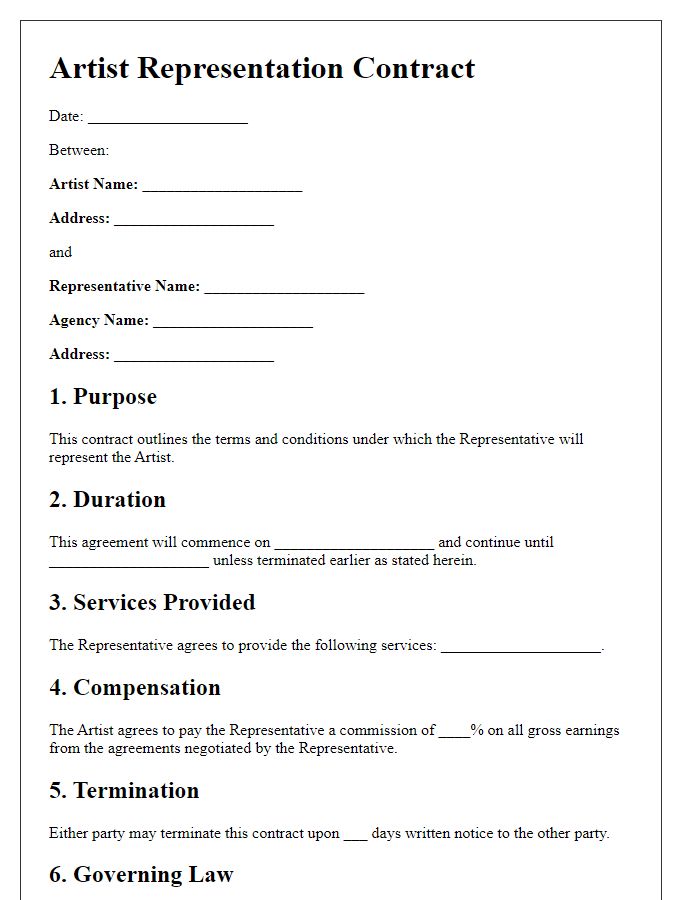
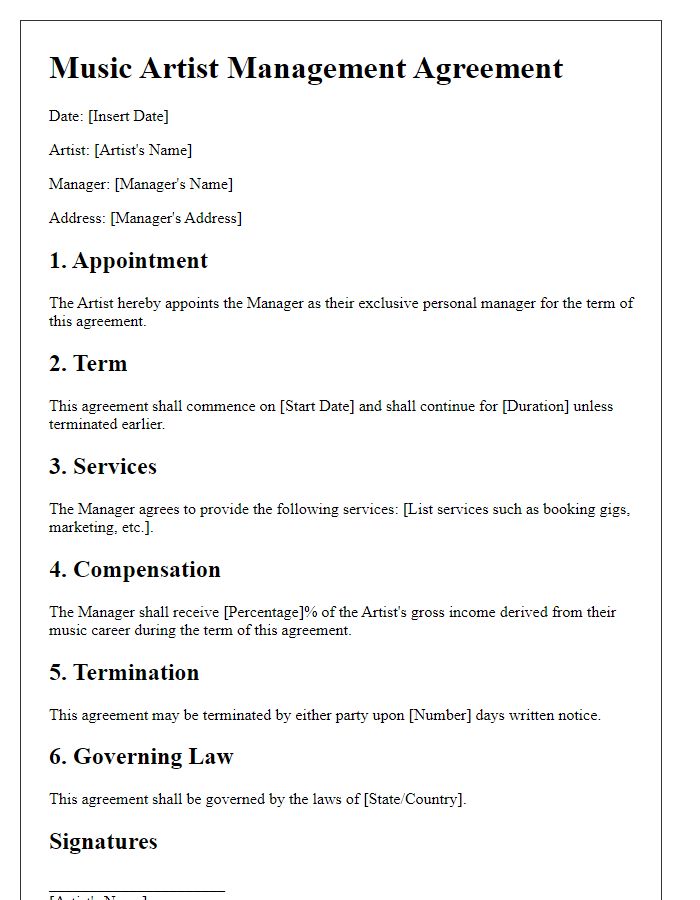
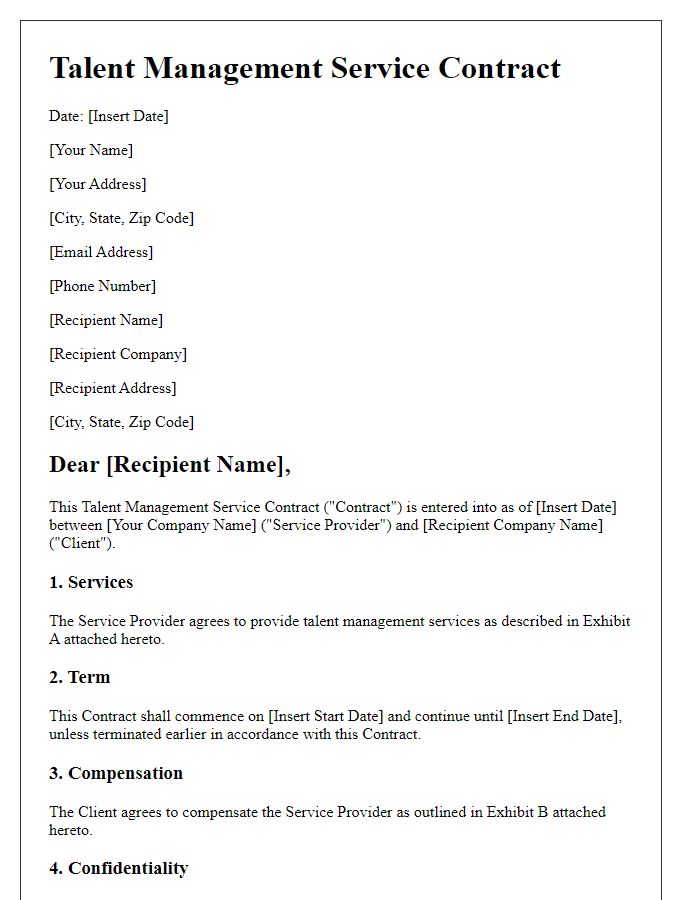
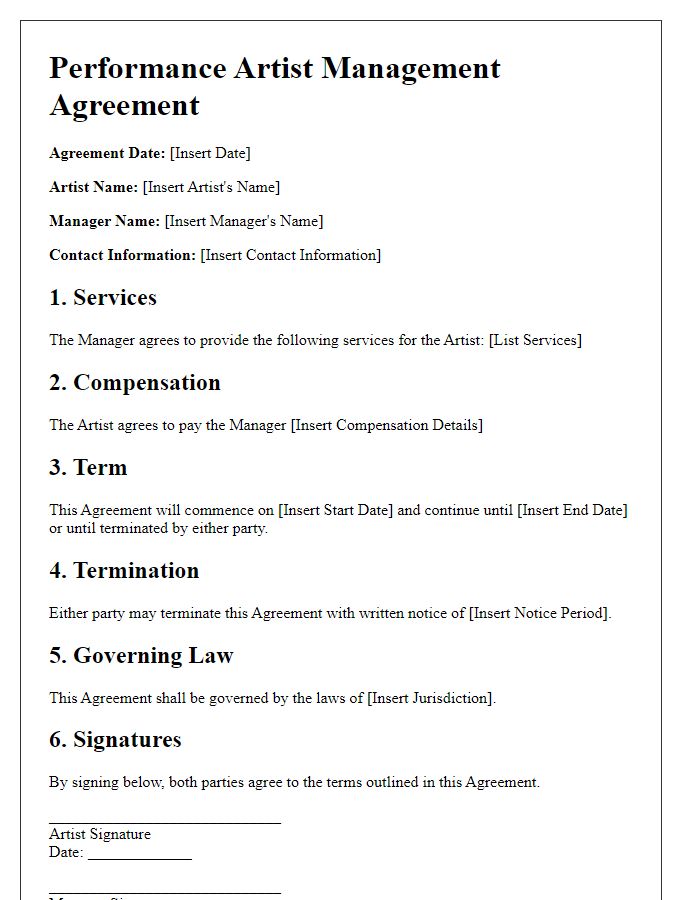
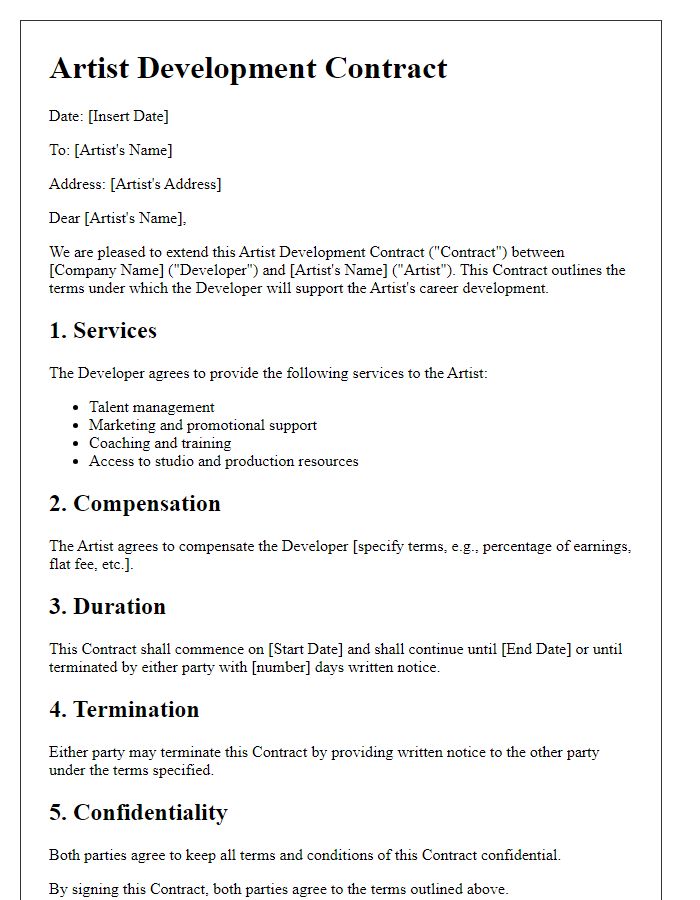
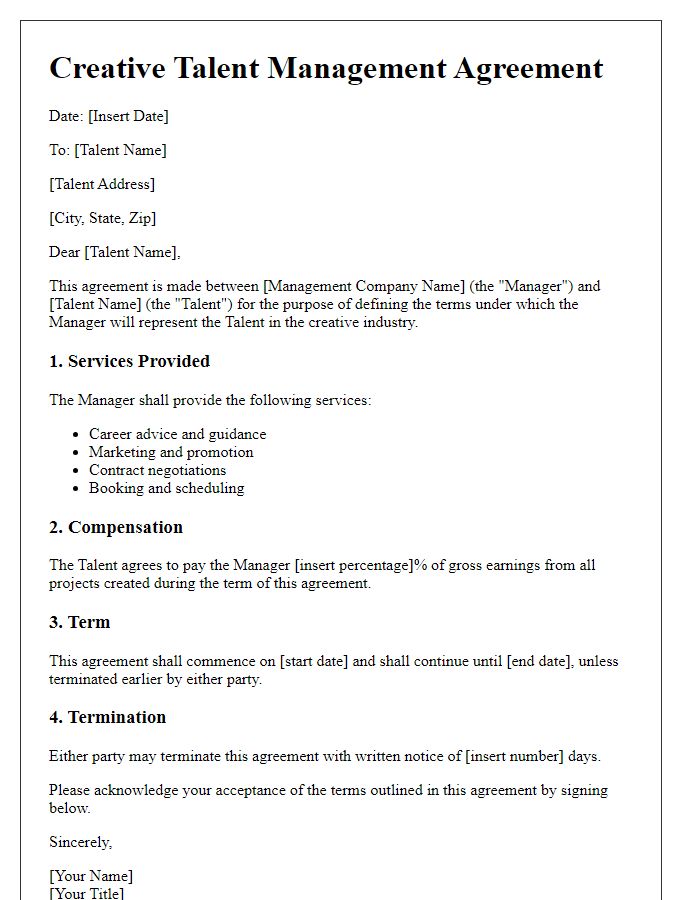
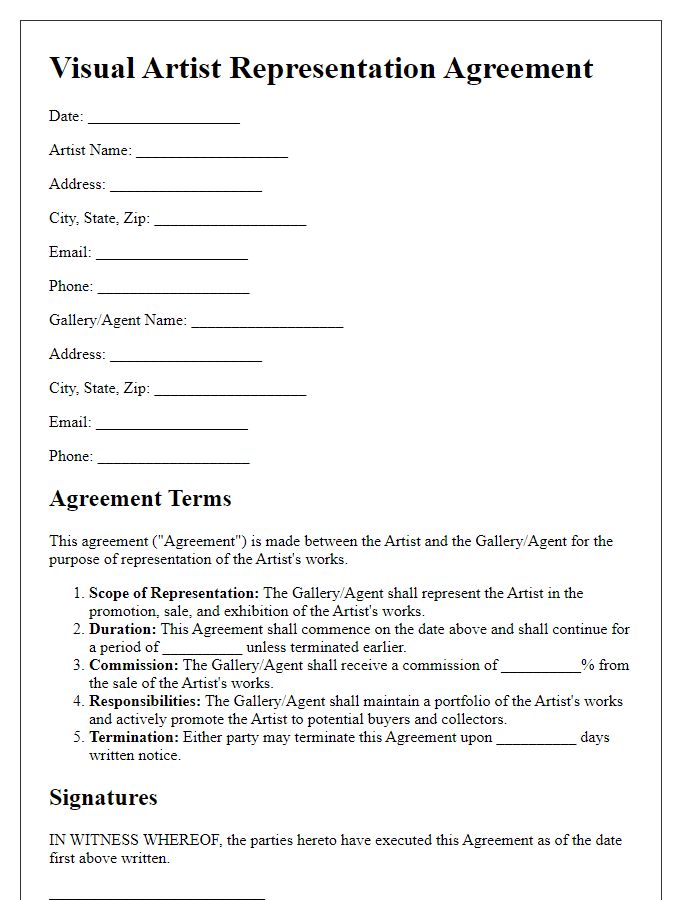
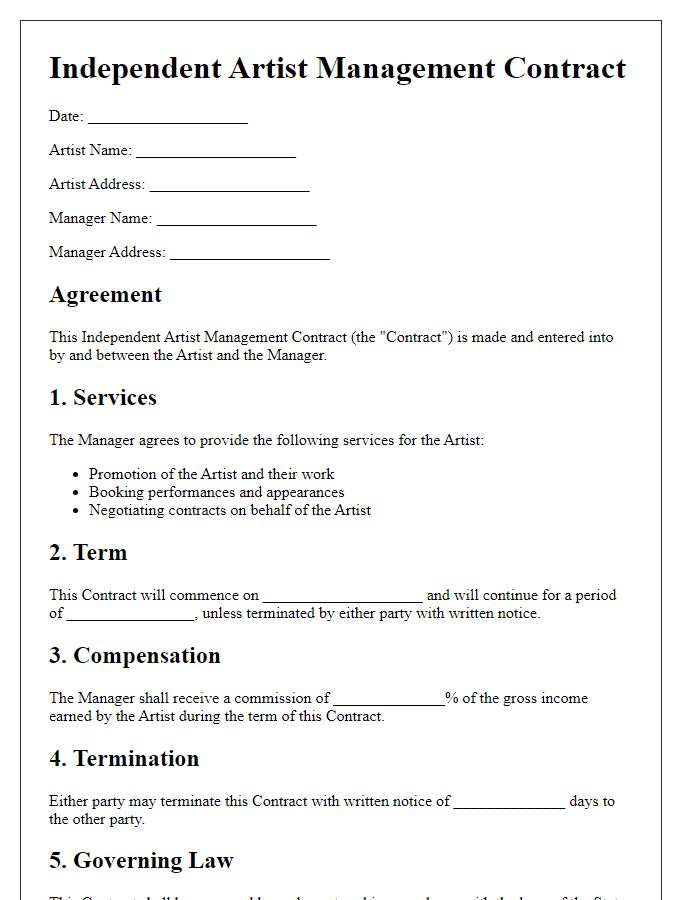
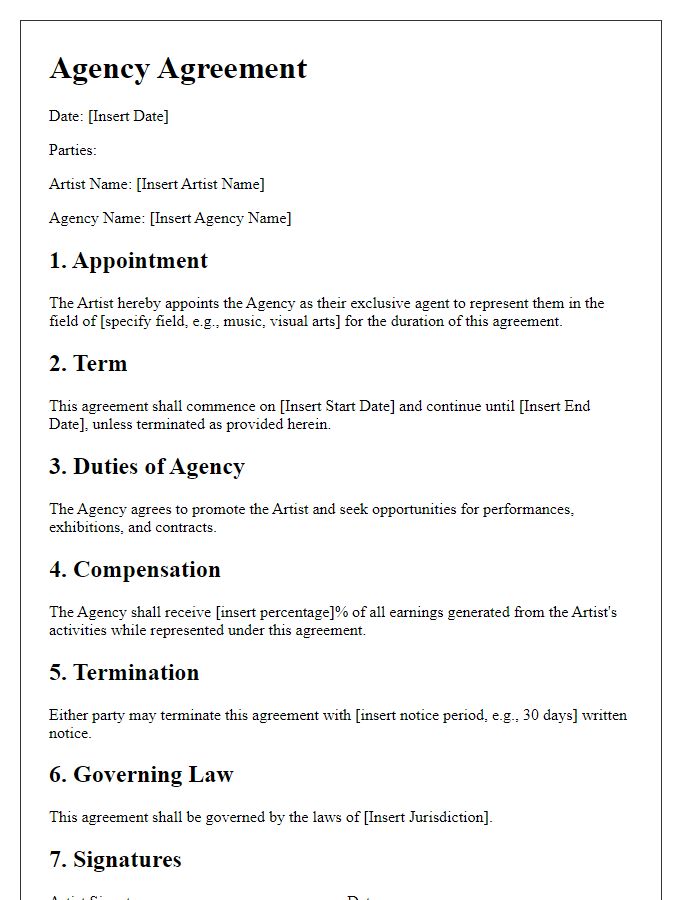


Comments